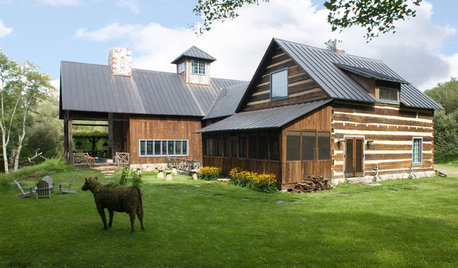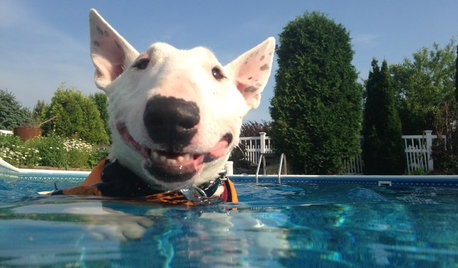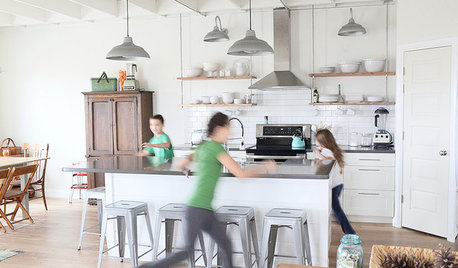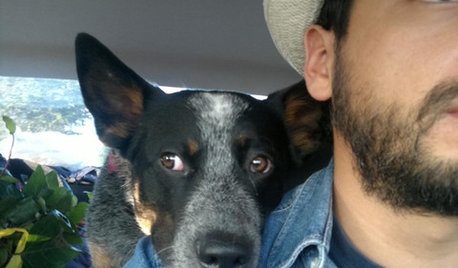Educate me on having a dog - long intro
3katz4me
11 years ago
Related Stories

LIFEThe Polite House: Do I Have to Display Decor Given to Me as a Gift?
Etiquette columnist Lizzie Post tackles the challenge of accepting and displaying home decor gifts from frequent visitors
Full Story
INSPIRING GARDENSNative Plants Inspire and Educate at NYC's Botanical Garden
Stroll through the new Native Plant Garden with us to get great ideas for plant choices and sustainability
Full Story
MOST POPULAR40 Dogs Who Are Having a Way Better Summer Than You
Houzzers share pics of their canine companions living it up — or getting down with relaxing — on warm days
Full Story
FARM YOUR YARDIf You Have Room for Only One Summer Crop ...
Get an edible that’s long on flavor even if you’re short on space, with a long-time gardener’s favorite picks
Full Story
MOST POPULARA Fine Mess: How to Have a Clean-Enough Home Over Summer Break
Don't have an 'I'd rather be cleaning' bumper sticker? To keep your home bearably tidy when the kids are around more, try these strategies
Full Story
COLORHave You Heard the Hues? 15 Colors You May Not Know About
Name-drop these shades at holiday parties — or better, try one on your walls — and expand your palette possibilities
Full Story
HOUSEPLANTSMeet a Long-Lasting Houseplant With a Forgiving Heart
Low light and little watering won't scar Zee Zee plant for life; this East Africa native has a tolerant nature and an exotic beauty
Full Story
MOVINGRelocating Help: 8 Tips for a Happier Long-Distance Move
Trash bags, houseplants and a good cry all have their role when it comes to this major life change
Full Story
ARCHITECTUREHave It Your Way — What Makes Architecture Successful
Universal appeal doesn't exist in design. The real beauty of any home lies in individualization and imagination
Full Story
PETS50 Dog Photos Worth a Wag
Design hounds: Share in the pet love with Houzzers' snapshots of their beloved dogs at home, in the workshop and at play
Full Story








cooksnsews
User
Related Professionals
Baltimore Architects & Building Designers · Johnson City Architects & Building Designers · Winchester Architects & Building Designers · Glenbrook Interior Designers & Decorators · Shorewood Interior Designers & Decorators · Rogers Furniture & Accessories · Buena Park Cabinets & Cabinetry · Potomac Cabinets & Cabinetry · Wadsworth Cabinets & Cabinetry · Cottage Grove Flooring Contractors · Fall River Flooring Contractors · Limerick Flooring Contractors · Seekonk Flooring Contractors · White Bear Lake Flooring Contractors · Winter Park Flooring Contractorsannzgw
spedigrees z4VT
3katz4meOriginal Author
stir_fryi SE Mich
spedigrees z4VT
spedigrees z4VT
quasifish
eandhl
3katz4meOriginal Author
ermachef
cooksnsews
spedigrees z4VT
cooksnsews
Yorkies2
spedigrees z4VT
jackieblue
ryseryse_2004
janie1979
calliope
Bumblebeez SC Zone 7
mazer415
calliope
3katz4meOriginal Author
stir_fryi SE Mich
Marinewifenc